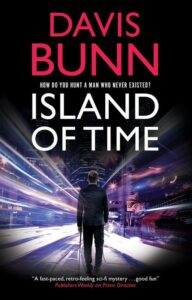Four and a half years ago, I was approached by the Director of Development for Gil Netter, who won an Oscar for ‘Life of Pi’. For those readers who do not know the film industry, a development director plays an enormously important and complex role. First of all, they choose the stories or scripts that could potentially be shaped into new projects. Once this process is complete and the screenplay receives a green-light from the board, the DD then handles all preliminary casting and contracts. Once everything is in place and the stars align, the DD passes the project over to the chief producer and newly hired director, and they start production.
Like I said, a big job.
This DD, as the Director of Development is known, contacted me to say he had become a fan of my work; did I have a concept that was big enough, and original enough, to become their next feature?
The answer was yes, maybe, I had a new idea I was playing around with that might fit the bill. Even so, it took me almost a month to respond.
The very idea of pitching a story to someone in his position was terrifying. Finally my wife put her foot down and ordered me, then and there, to make the call.
I knew if I waited I would successfully manage to delay things another month. Or year. This was my first-ever contact with top-tier Hollywood. I’ll never forget that moment when the phone started ringing…
We were seated in our car in the market town of Witney. Rain pelted the roof. Five o’clock on a Friday afternoon, nine in the morning LA time. A perfect moment for him to not be available. Which of course I was desperately hoping would happen.
Instead, he answered. And to make matters worse, he said he had time to hear my pitch.
With my wife listening over the car’s speakers, I laid it out. Tried to keep my voice steady by keeping a white-knuckle grip on the steering wheel. I described an alternative world where magic was real, and Interpol tasked with the global policing of Talents – my word for people with magical powers. The word Talent worked because, except for a very small group of Adepts, wizards generally possessed just one magical ability.
These Talents loathed Interpol. The very idea of wizards being policed by the mundane, their powers kept in check by the same laws and principles that were applied to the ungifted, drove them to a constant and never-ending fury. They used all the money and power at their disposal to have Interpol disbanded.
And then rumors began to surface, of a centuries-old power that had been relegated to the realm of fables, now whispered to be both real and available. Spells which granted the user the ability to go back in time, change the course of events. Reshape the global order.
Two agents were tasked with tracking down the rumors. Risking their own lives in the process. Keeping the spells out of the hands of renegade Talents and government agencies who might seek this ultimate weapon for themselves.
My pitch lasted seven minutes.
When I was done, there was a long moment of silence, then the words that every author on earth, every artist, dreams of hearing.
WOW. I LOVE IT.
He probably didn’t shout the words. But that was how it sounded inside my head.
Isabella pried one of my hands off the wheel and pulled it over where she could hold it with both of hers. We listened to him take this feeble pitch and turn it into something concrete – in his words, a mature fantasy for adults, one that avoided the multitude of cartoonish super-hero stories and the current wave of zombies and vampires. He urged me to write the novel first, let him go through it, then together we would shape the script.
Needless to say, the sun came out during our conversation. No, really.
Further deliberations and long conversations followed, first with Isabella (my wife) and then including my literary agent, Chip MacGregor. Together we decided it would be best to hold back on pitching the novel, for two reasons. First, the book’s final shape should fit the actual movie, because the Development Director saw this as the first of several films. Having the two stories move in tandem was crucial.
Second, we wanted to do what had only happened a few times in history – have the publishing campaign for a new novel work in tandem with the film’s publicity machine.
Only this created a problem. Because I was already under contract for other books, I needed to somehow squeeze this writing into an already full schedule.
Fourteen months later, I called the film company with the happy news. The book was completed. Ready for their first read. So excited, so utterly thrilled.
Only there was a problem. The director, my advocate in the company, had moved on. And the new director was completely and utterly disinterested in my project.
I was new to this game, but I’ve since learned this is a common tactic in LA. Projects started by an ousted executive are almost never taken on by their replacement. The new guy wants to imprint his or her vision on the group. Continuing with an early-stage project means burnishing someone else’s image.
All those hopes and dreams. Gone.
*****
In the dark weeks that followed, some unexpected glimmers of light appeared. Producer-director Bart Gavigan (End of the Spear, Luther) and Emmy and Bafta-winning writer-director Norman Stone (Shadowlands) read my unpublished manuscript. Film executives at this level are inundated with scripts. For them to take the time to read a novel – five times the length of a feature-film screenplay – was a huge gift. As was their response. Both were unreservedly positive and urged me to begin work on the script. Bart went so far as to offer detailed notes on how he felt the screenplay should be shaped; I liked these so much I decided to incorporate them into the novel.
A few months later, my newly-completed screenplay was passed to Ileen Maisel, producer of Golden Compass and many others. She invited me to a meeting at Claridges, where she had taken up temporary station. She informed me that it was impossible for her to take the project herself, as she was fully committed to a series (The Dresden Files, soon to be aired on ABC). But she liked my work, and wanted to remain in contact.
As a result of this meeting, Island of Time then journeyed to Los Angeles. Soon after, so did I.
My third Hollywood meeting was with David Lipman (producer of Shrek and Ironman), president of Starlings Entertainment, and his DD Emily Gottlich. They both were the exact opposite of everything I’d been led to believe about top-tier Hollywood executives. They were soft-spoken, highly intelligent, and as gentle as they were intense. Because they had simply asked to meet, without any actual response to my story, I had been warned by others that they probably liked my writing but were not interested in that particular script. So I had practiced pitching two other stories. For days.
Their offices were in a brand new building on the corner where Wiltshire Boulevard met the Pacific Ocean. Not really. Wiltshire actually dead-ends into Ocean Avenue, which then fronts a narrow park, then the cliff which drops down to the PCH, then the beach and the Santa Monica Pier. But when I exited the elevator and entered the Starlings penthouse offices, all I could see through the wall of glass was…
Blue.
And storm clouds. And rain. Because it was a freezing rain-swept February day in Los Angeles. For which David and Emily apologized. Like I was expected to be seriously bothered by the weather.
So I there I was, poised on the edge of their designer sofa, with the two of them seated with their backs to the Pacific. Ready for them to ask if I had anything else I could offer…
The words they spoke just didn’t seem to fit inside my head.
It actually took a while for their news to register. Probably thirty seconds. Less. But it felt like hours. Then…
They loved my script. They wanted to buy it. Not option. Buy. Put it into production. Immediately. They had decided to approach David Womark, producer of such hits as Deepwater Horizon, to run the project.
Boom.
I have flashing images of what happened after. They wanted to know if I had a sequel. Thankfully, I was so deeply engaged with the story that I already had an idea. I pitched that, scarcely believing what I was hearing from them.
Sometime later, I left. Floated down the park. Called my wife. Drove to the hotel. Too excited. Walked through the wind and the rain. For hours.
The next thing I heard was, their legal department would not get around to sending me the T&C Sheet (contractual terms and conditions, negotiated before the contract itself is penned) until after Cannes. At the time, the news was mildly hilarious – my project was delayed a month because of something they needed to get ready for presenting in France, and the same should happen to my film the following year.
My film.
The next four months seemed endless. A few high notes were reached; film budgeted at thirty million, my payment upon first day of filming was to be six hundred thousand dollars, and so forth. But mostly it was a time of tension, and trying to stay patient, and unanswered phone calls to the legal department.
Like I said, endless.
Four months stretched to five, then six, and suddenly the summer was over and autumn had started, and then autumn was winding into winter, and I still did not have the actual contract.
When the phone call finally came, it almost felt like I knew what had happened before the connection was made. Karine Martin, CEO of Starlings, told me in our first-ever conversation that Starlings was being sold. And the buyers only wanted their television division and their film-investment fund. And all of the current film projects were being dropped. And earlier that day, David Lipman had been fired.
Those words still weigh several thousand pounds. Each.
I actually don’t think the acquisition ever went through. Covid was probably the reason. In any case, Starlings is still an indie production group, and Karine Martin is still CEO. But what I think happened was this. And David Lipman, now a personal friend, agrees.
The acquirer was probably Lionsgate. And this illustrates a major issue I’ve faced from the beginning with Island of Time. And a barrier that David has confronted his entire career.
The standard tracks expected within contemporary fantasy run one of two ways. Either they hold to the teenage-angst-and-romance structure (Buffy, Twilight), or they are very dark indeed (World War Z). There are huge hits within both directions; and these structures represent common threads in contemporary entertainment.
And then there are people who seek a different path.
But current themes and directions in entertainment are not the topic here. So I will close with two brief comments about Island of Time.
First, my aim from the beginning was to apply a classical heroic structure to neartime fantasy. Use the naturally occurring elements of light and dark, good and evil, and magnify them by adding magic to this world.
Second, and most important of all, my novel has now found a home.
To everyone involved in bringing this story to life, I offer my heartfelt thanks. Most especially to Carl Smith, my editor at Severn House, who has revealed a truly gifted eye at honing story, and drawing out the best.
Thank you all.


